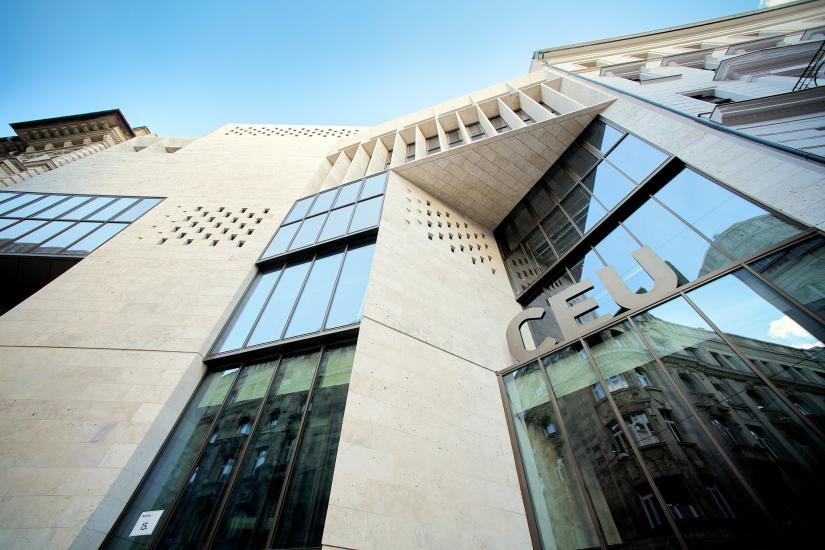
“Romaphobia and the Media” WorkshopNovember 27, 2017 Central European University,Budapest Nador utca 15,Quantum Room 101 1-6 p.m.
RSVP: Andreea Leru, lerua@ceu.edu, +36-1-327-3000 ext. 2602
The main language of the presentations will be English, the panel discussion will be held in Hungarian. English-Hungarian interpretation will be ensured throughout the workshop.
The workshop is based on a special issue of the Identities journal on Romaphobia and the Media forthcoming in December 2017
Presentations and discussions will examine the images of Roma people that are reproduced and circulated by the media and the public sphere. The panel discussion involves both Roma and non-Roma professionals working in or on the media; participants will reflect on how stereotypical images get reproduced, and how they themselves tackle such misrepresentations in their working lives.
Draft Program
13.00: Welcome and Introductions
Editors: Annabel Tremlett, Vera Messing, and Angéla Kóczé
13.15 – 14:15 Session 1
Gábor Bernáth & Vera Messing: Disempowered by the media: causes and consequences of the lack of media voice of Roma communities
Maria Bogdán: Roma Press Centre – 20 years of making a difference
Angela Kóczé & Márton Rövid: Roma and the Politics of Double Discourse in Contemporary Europe
Q&A
14.15 – 14.35 Coffee break
14.35 – 15.35 Session 2
Annabel Tremlett: Visualising everyday ethnicity: moving beyond stereotypes of Roma minorities
Markus End: Subtle Images of racism. An analysis of strategies and mechanisms shaping the stereotypical perception of ‘Roma’
Iulius Rostas: Anti-Gypsyism, education and the media: ways forward
Q&A
15.35 – 16.00 Coffee break
16.00 – 18.00 Panel discussion: How are stereotypes of Roma produced and circulated in the media, and what can be done to counteract such images?
Chairs: Vera Messing & Angéla Kóczé
Panel members:
Attila Hídvégi Balogh (journalist, RomNet)
János Daróczi (journalist)
Ernő Kadét (Roma Press Center / Roma Sajtóközpont)
Veronika Munk (index.hu / Eötvös Loránd Tudományegyetem)
Eszter Neuberger (abcug.hu)
***
Followed by a wine reception
***
Summary of ‘Romaphobia and the Media’, a special issue of Identities journal (due out December 2017)
This special issue of Identities, entitled ‘Romaphobia and the media’, examines entrenched and on-going media coverage of Roma, Gypsy and Traveller people across Europe, as well as various alternative ways of representing Roma people. The special issue aims to contribute to the wider scholarly discussions of exclusion of Roma addressing one important aspect of exclusion: media representations. We will look at the types of negative reporting of Roma across the media and the consequences of such representations, along with alternative possibilities to negative images, and the challenges to such approaches. Reflecting on European contexts, the special issue addresses three sets of crucial questions:
(1) How is Romaphobia perpetuated and circulated by the media? What are the mechanics of such representations and where does the power reside in the production of such images?
(2) How is ‘Roma’ defined in media discourses, and what is the context?
(3) Are there alternative representations? How and with what intentions are they produced?
In this special issue the focus is on how the media problematizes the Roma, how it constructs a ‘conceptual map’ about Roma people, and what this tells us about the societies we live in. In this special issue we include three articles that enable an in-depth critical understanding of how hegemonising representations are formulated: in-depth examples from Hungary (Gábor Bernáth & Vera Messing) and Germany (Markus End) begin the special issue along with a conceptual mapping of how media stories on Roma are embedded in wider practices of neoliberalism and racialised discourses (Angéla Kóczé & Márton Rövid). But we do not stop there. What we noticed as special issue editors was that most of the literature on media representations of Roma details entrenched and pervasive stereotyping. This literature is really important and we are certainly not saying it is sufficient, as researchers themselves point out: we still have much to learn about the construction, power and effect of media representations of Roma (Kroon et al 2016, Richardson 2006, 2014, van Baar 2011). However, there is also a real dearth in understanding how to challenge and change such images. In this special issue we therefore also include articles that focus on mediums that might be able to challenge such damaging media representations. Films and documentaries can provide spaces for alternative stories, although they still tend to be mired in age-old stereotypes (Hilde Hoffman & Habiba Hadziavdic); whilst approaches that focus on Roma themselves producing images on the ‘everyday’ can provide different insights into Roma lives than those shown in the press or other public spaces (Annabel Tremlett).
Finally, this special issue deviates from the usual journal structure by asking three professionals from varying Roma backgrounds to give their views and experiences in shorter commentary pieces on how they tackle Romaphobia and the media. Daniel Baker writes about the role of art in challenging Romaphobia and connecting to Roma identity in his personal life, in his work as an artist in the UK and internationally in the exhibitions he has curated; Mária Bogdán, journalist and academic, in conversation with Ernő Kadét and Gábor Bernáth, discusses how the Roma Press Center in Budapest continues to challenge distorting media stories in an internet age; whilst Iulius Rostas shares his extensive experience of being an educator and activist in Romania and beyond, and how he attempts to ensure that reforms aiming at inclusive education for Roma are accepted and succeed at a local level. We find the inclusion of these commentary pieces very powerful in offering a perspective of active interventions and resistance that we should not forget amidst the depressing continual circulation of racialised stereotypes.